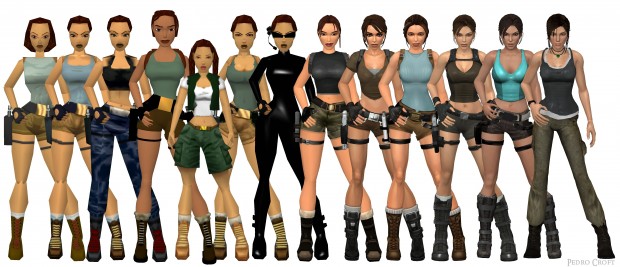The issue of mental illness in games has been an important topic in the games community for the past few years, though it has yet to really breach the world of game studies in academia. Here at NYMG we have published two pieces dedicated to the issue, and have mentioned it countless times. Sarah Nixon wrote a great piece about using mental illness and the asylum as a trope in horror games, investigating how damaging the association of mental illness with violence and horror can be. It may seem like a harmless thing (it’s just a game after all!), but as we have seen throughout the history of narrative, portrayals and associations will be seen as fact when repeated often enough. The woman in the attic trope from literature still has an impact on how women are seen as “crazy” when being emotional while men are often seen as passionate for displaying emotion.
Ashley Barry talked about how mental illness has become another kind of damsel in distress in games, with mentally ill characters being portrayed as one dimensional, only serving a purpose to serve as foil to the protagonist. FemHype talks about this even more pointedly, examining the associations between bordline personality disorder, madness, and evil. The author, Lindsay, makes an interesting point that “insanity” is not a psychological diagnosis. It is solely a legal one. You cannot be deemed insane by a psychiatrist, but you can be deemed insane by a judge. Perhaps this is one reason games and other narrative media are obsessed with the idea of insanity: being insane is automatically, according to our world, associated with criminality.
I have spent the last week or so obsessively playing Don’t Starve: Shipwrecked, the newest DLC for possibly my favorite game of all time, Don’t Starve. If you haven’t played Don’t Starve, let me explain a bit about the role of insanity in the mechanics and story of the game. The game is “mad.” Madness comes from a late 14th century combination of insanity and foolishness. The term, for me, calls images of Alice in Wonderland, the mad hatter, and the jabberwocky. It also calls to mind the subversive magic of magical realist literature, where people turn into butterflies when they die and fly away. These worlds are incoherent. But are the protagonists, antagonists, and characters insane?
As I play Don’t Starve, I try to look at the way mental health is portrayed, if insanity can even be said to be a depiction of mental health, which I am very much on the fence about. There is an insanity meter, which suggests there is a kind of continuum, where “normal” is above, say, 75 insanity points and you hallucinate when you’re down to 30. Yes, mental health does not work this way, nor does hunger, social interaction, fun, and all the other meters used in games. Human needs are often depicted in this full vs. empty, high vs. low visual iconography in games. When obsessed with Sims when I was younger, I would use the language to describe things: my hunger meter is low, etc. It was a fun way to think about human needs, it seems more ordered than the complex and chaotic way things like hunger really function.
But what I eventually came to is this: there is a difference between an incoherent world, madness, and mental illness. When a game depicts a borderline character as murderous, or leans on the tired trope of the muttering and murderous ghost in an insane asylum, we should absolutely stop to think about what impact those depictions have on society’s view of mental illness. We need to stop using mental illness and places associated with it as a synonym for evil. However, when the world is incoherent, or mad, we may want to focus on the more political and communal message the game or work is conveying. Magical Realist literature is politically, socially, and historically subversive. It calls into question narratives written by oppressors and the winners, so to speak. It calls into question a dominant view of reality as solid, shared, and immutable. What are games like Don’t Starve really saying? Are they forcing us to question our own understanding of reality and rationality? I think so. And this is the subject of my next post.
Stay tuned.




